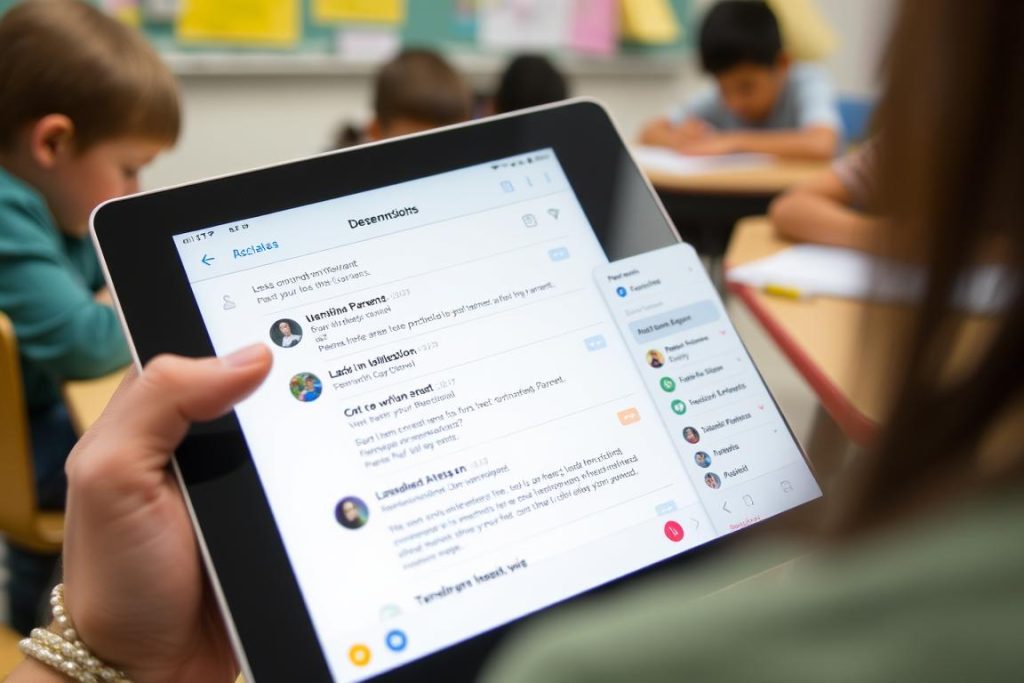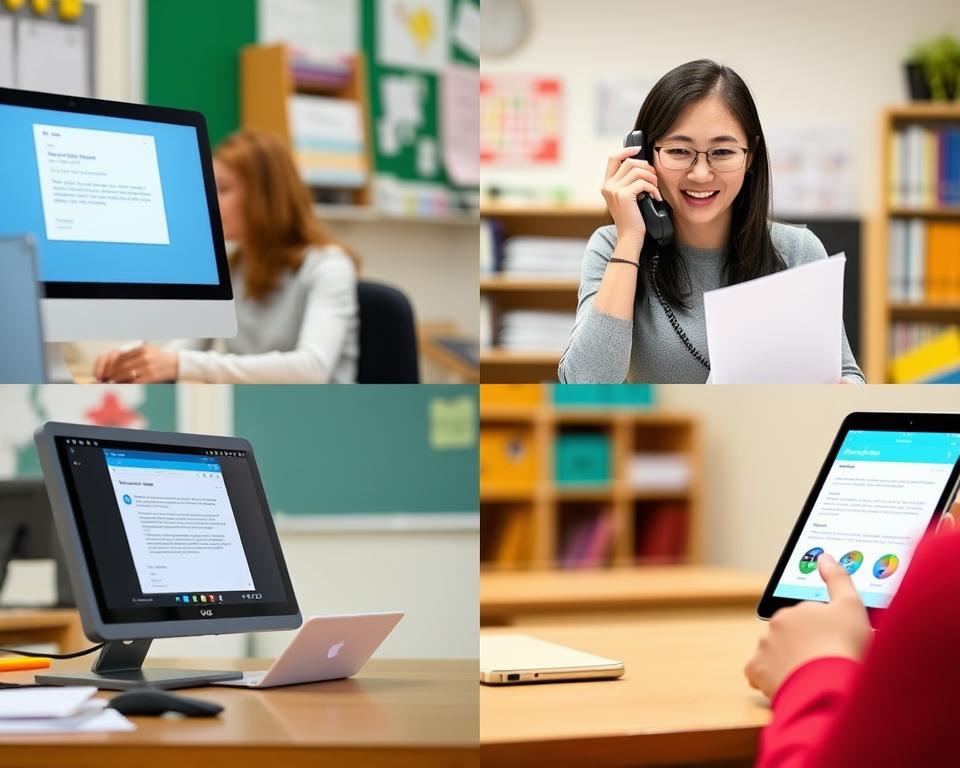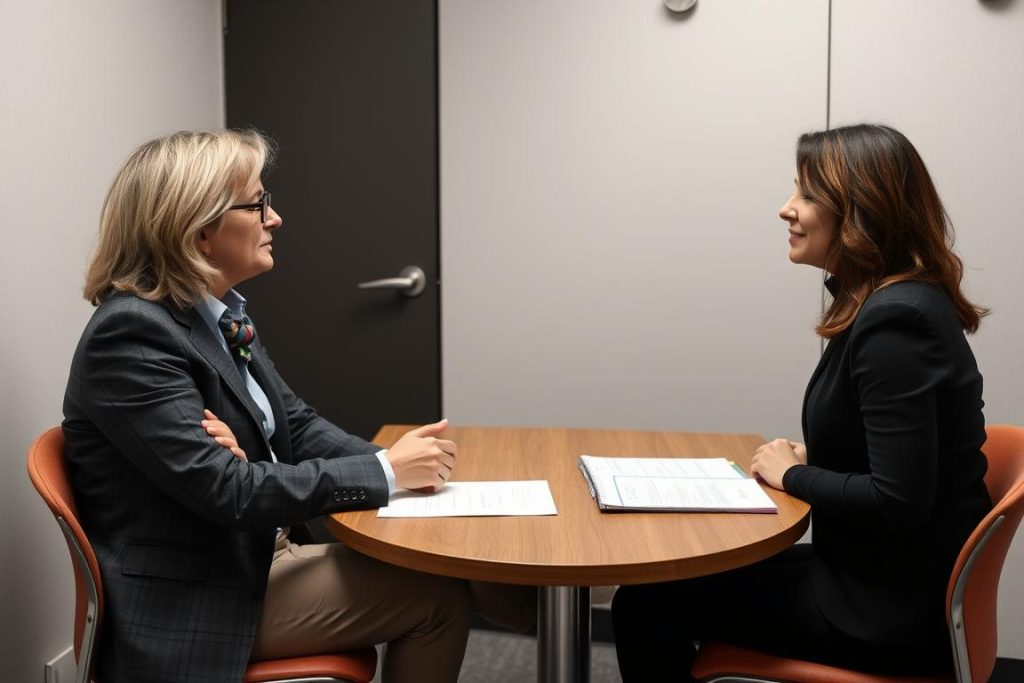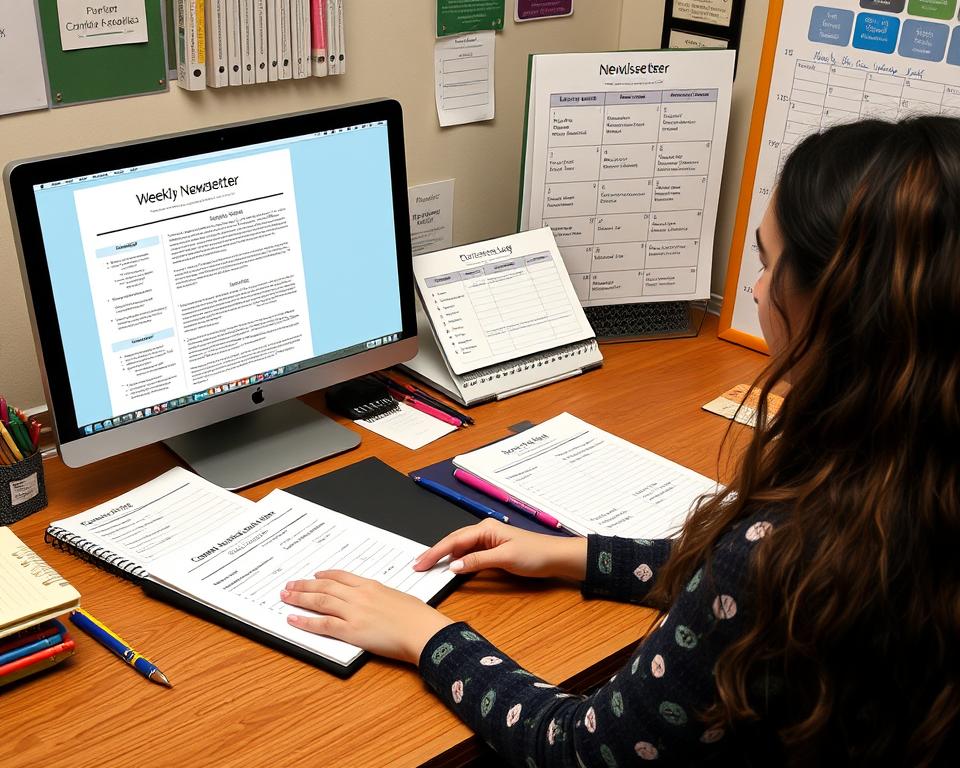Why Communicating with Parents and Families Matters
Research consistently shows that strong home-school partnerships lead to improved student outcomes. According to a Harvard Family Research Project study, students whose families are involved in their education are more likely to earn higher grades, have better attendance records, and demonstrate more positive attitudes toward school.
Developing teacher skills in family communication isn’t just beneficial for students—it also makes your job easier. When parents understand classroom expectations, curriculum goals, and their child’s progress, they become valuable allies in the educational process. This partnership reduces misunderstandings and creates a supportive network for both academic and behavioral challenges.
“The way I see it is, we’re a team. Getting the parents involved—students feel supported, and I feel supported at the same time.”
– Johanna Amaro, ESL Teacher
Effective teacher skills in parent communication also help bridge cultural and linguistic divides. As classrooms become increasingly diverse, the ability to connect meaningfully with families from various backgrounds becomes an essential professional competency that enhances your effectiveness as an educator.

Common Barriers to Communicating with Parents and Families
Before diving into strategies, it’s important to recognize the challenges that can hinder effective communication with families:
Time Constraints
Both teachers and parents often juggle multiple responsibilities, making it difficult to find time for meaningful communication. Developing efficient teacher skills in this area helps maximize the impact of limited interaction opportunities.
Language Differences
In diverse school communities, language barriers can significantly impact communication quality. Teachers need specific skills to navigate these challenges effectively.
Cultural Misunderstandings
Different cultural backgrounds can lead to varying expectations about the role of teachers and parents in education. Building cultural competence is a crucial teacher skill for bridging these gaps.
Technology Access
Digital divides can limit some families’ ability to engage with technology-based communication methods, requiring teachers to develop skills in multiple communication approaches.
Recognizing these barriers is the first step toward developing the teacher skills necessary to overcome them. The strategies below will help you navigate these challenges while building stronger connections with the families you serve.
Essential Strategies for Communicating with Parents and Families
Implementing effective communication strategies requires intentionality and practice. Here are proven approaches that can enhance your teacher skills in family engagement:
1. Establish Early Positive Contact
One of the most powerful teacher skills is the ability to establish positive relationships before problems arise. Research shows that parents are more receptive to difficult conversations when they’ve already experienced positive interactions with you.
- Send welcome emails or letters before the school year begins
- Make positive phone calls home during the first weeks of school
- Create a classroom newsletter highlighting student achievements
- Host an informal meet-and-greet early in the year
By investing in these early connections, you build a foundation of trust that supports all future communications. This proactive approach is a hallmark of advanced teacher skills in family engagement.
Enhance Your Parent Communication Skills
Looking for professional development opportunities to strengthen your approach to communicating with parents and families? Explore our specialized courses designed specifically for K-12 educators.
2. Diversify Communication Channels
Different families have different communication preferences and access. Developing versatile teacher skills across multiple platforms ensures you can reach all parents effectively.
Digital Options:
- Class websites or blogs
- Email newsletters
- Learning management systems
- Communication apps with translation features
Traditional Methods:
- Printed newsletters
- Phone calls
- Face-to-face conferences
- Home visits (where appropriate)
The most effective teachers develop skills in determining which communication methods work best for different families and situations. This adaptability is crucial for inclusive communication practices.

Culturally Responsive Approaches to Communicating with Parents and Families
Cultural competence is an increasingly important teacher skill in today’s diverse classrooms. Families from different cultural backgrounds may have varying expectations about school communication and involvement.
According to research from Colorín Colorado, when teachers adapt their communication approaches to honor cultural differences, family engagement increases significantly.
Key Teacher Skills for Cultural Responsiveness:
- Learn about family backgrounds: Understanding cultural norms helps avoid misunderstandings
- Use translation tools effectively: Leverage technology while recognizing its limitations
- Incorporate cultural celebrations: Acknowledge important cultural events in your communications
- Adapt meeting styles: Some cultures may prefer group settings over individual conferences
- Practice active listening: Pay attention to both verbal and non-verbal communication cues
Developing these teacher skills demonstrates respect for family diversity and creates more inclusive communication environments. This cultural responsiveness is essential for building authentic partnerships with all families.
Navigating Difficult Conversations with Parents and Families
Even with strong communication systems in place, challenging conversations will arise. Developing teacher skills for these situations is crucial for maintaining productive partnerships.
Preparation Strategies:
- Gather specific examples and documentation before meetings
- Practice what you’ll say with a colleague
- Anticipate questions or concerns parents might raise
- Schedule enough time for thorough discussion
- Choose a private, comfortable meeting space
During the Conversation:
- Begin with positive observations about the student
- Use “I” statements rather than accusatory language
- Focus on specific behaviors rather than personality traits
- Listen actively to parent perspectives
- Collaborate on solutions rather than dictating next steps
These teacher skills help transform potentially adversarial situations into collaborative problem-solving opportunities. Remember that parents and teachers share the same goal: supporting student success.
“When teachers and parents approach difficult conversations as a team working toward solutions, students benefit tremendously from this united front.”
Developing advanced teacher skills in navigating challenging conversations is an investment that pays dividends throughout your career in education.

Leveraging Technology for Communicating with Parents and Families
Digital tools have transformed the landscape of parent-teacher communication, offering new opportunities to connect meaningfully with families. Developing teacher skills in educational technology enhances your ability to maintain consistent communication.
Effective Digital Communication Tools:
Communication Apps
Platforms like ClassDojo, Remind, and Seesaw allow for instant messaging, photo sharing, and translation features that break down language barriers.
Learning Management Systems
Google Classroom, Canvas, and similar platforms provide parents with visibility into assignments, due dates, and student progress.
Video Conferencing
Tools like Zoom and Google Meet enable virtual conferences for parents who cannot attend in-person meetings due to work schedules or transportation issues.
While technology offers powerful communication options, it’s important to develop teacher skills in determining when digital tools are appropriate and when traditional methods might be more effective. The goal is always meaningful connection, regardless of the medium.
Remember that technology should enhance, not replace, personal connections. The most effective teachers develop skills in balancing digital efficiency with the warmth of personal interaction.
As you explore new technologies, focus on those that align with your communication goals and are accessible to the families you serve. This thoughtful approach demonstrates advanced teacher skills in digital literacy and family engagement.
Building Consistency in Communicating with Parents and Families
Consistent communication is more effective than sporadic outreach, no matter how well-intentioned. Developing teacher skills in establishing regular communication routines helps parents know what to expect and when.
Creating Sustainable Communication Systems:
- Establish a communication schedule: Weekly newsletters, monthly progress updates, quarterly conferences
- Create templates: Develop reusable formats for common communications to save time
- Set boundaries: Communicate your availability and response timeframes clearly
- Delegate when possible: Involve students in age-appropriate communication tasks
- Use batch processing: Set aside specific times for parent emails or calls rather than responding sporadically
These organizational teacher skills help prevent communication burnout while ensuring families receive regular updates. Consistency builds trust and demonstrates your commitment to keeping parents informed and involved.
Master the Art of Parent Communication
Our specialized course on communicating with parents and families provides practical strategies, templates, and tools to enhance your teacher skills in this critical area.
Remember that consistency doesn’t mean rigidity. The most effective teachers develop skills in adapting their communication approaches while maintaining predictable patterns that families can count on.

Measuring the Impact of Your Parent and Family Communication
Effective teachers continuously evaluate and refine their communication approaches. Developing teacher skills in assessment helps you determine what’s working and what needs adjustment.
Evaluation Strategies:
Quantitative Measures:
- Track response rates to communications
- Monitor parent participation in events
- Count frequency of parent-initiated contact
- Survey parents about communication preferences
Qualitative Indicators:
- Observe changes in parent engagement
- Note the tone of parent interactions
- Gather feedback through conversations
- Reflect on the quality of parent-teacher relationships
These assessment teacher skills help you make data-informed decisions about your communication strategies. Regular evaluation ensures you’re meeting family needs effectively and efficiently.
Consider creating a simple parent feedback form at the end of each quarter to gather insights about your communication effectiveness. This demonstrates your commitment to continuous improvement in your teacher skills.
Remember that different metrics matter for different communication goals. Align your evaluation approach with your specific objectives for communicating with parents and families.

Conclusion: Becoming a Master at Communicating with Parents and Families
Effective communication with families isn’t just a nice-to-have skill—it’s an essential component of successful teaching. By implementing the strategies outlined in this article, you can develop the teacher skills necessary to build strong, productive partnerships with the families you serve.
Remember that becoming proficient in communicating with parents and families is an ongoing journey. Each interaction provides an opportunity to refine your approach and strengthen your teacher skills in this critical area.
The investment you make in developing these communication strategies pays dividends in student success, classroom management, and professional satisfaction. When teachers and families work together as true partners, students thrive academically, socially, and emotionally.
Take Your Teacher Skills to the Next Level
Ready to transform your approach to communicating with parents and families? Our comprehensive resources and professional development opportunities can help you build the teacher skills you need for successful family partnerships.
Explore Teacher Resources
Enroll in Parent Communication Course
What communication strategy will you implement first? The journey to masterful family communication begins with a single step—and the benefits for you, your students, and their families are immeasurable.





